15 Healthy Ageing Tips For The Over 50s
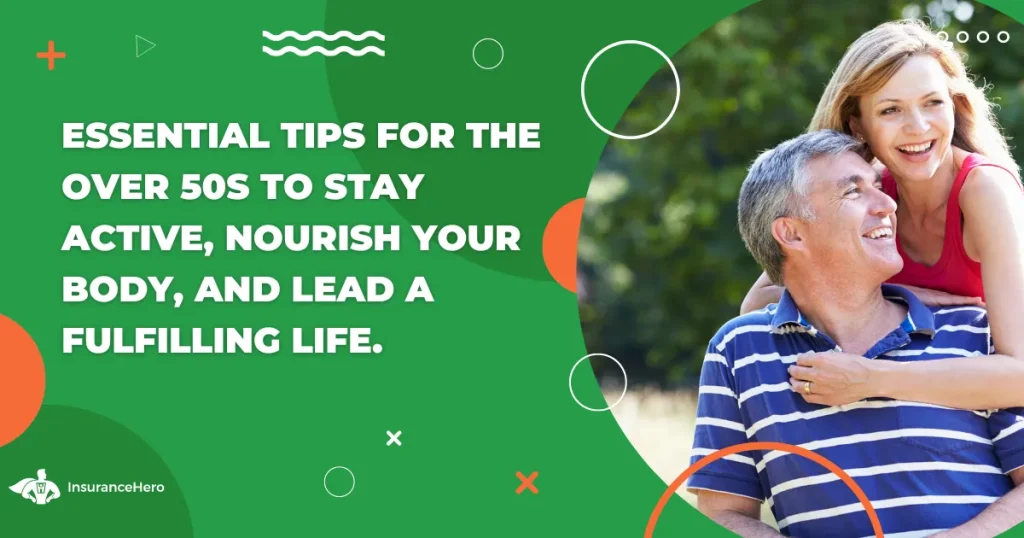
50 isn’t an old age by any means, but when you hit this milestone, you should start thinking about the future. Keeping yourself healthy will help prevent stiffness, pains, and limitations.
People in their 80s can still go on charity runs and climb mountains as long as they take care of themselves early on.
So, how can you keep yourself fit and healthy while being realistic with your goals? Here are 15 tips to keep your body in peak condition. Once these concepts become everyday goals, you can expand on them to make yourself even stronger.
Healthy Ageing Tips Summary Table:
| Tip | Description |
|---|---|
| Stay Active | Engage in moderately intense physical activity for 150 minutes every week and strength training exercises twice a week. |
| Watch What You Eat And Drink | Maintain a balanced diet with less processed foods and more natural food. Drink 6 to 8 glasses of water every day. |
| Look After Your Teeth | Maintain oral health by brushing twice a day and flossing at least once a day. |
| Work On Your Flexibility | Practice stretching to maintain muscle elasticity and prevent pain. |
| Manage Stress Levels | Use relaxation techniques, get adequate sleep, talk to a friend, and exercise to manage stress. |
| Stay Social | Regularly connect with friends and family, make new friends, volunteer, and find support groups in times of change. |
| Quit Smoking And Decrease Alcohol Consumption | Both smoking and alcohol are linked to premature ageing. |
| Get Enough Sleep | Aim for 7 to 9 hours of sleep a day for physical health. |
| Drink Plenty Of Water | Stay hydrated to avoid health issues like Urinary Tract Infections, mood changes, dizziness, and falls. |
| Go To The Doctor Regularly | Schedule regular check-ups with your doctor to catch health issues early. |
| Take Care Of Your Mental Health | Spend time outdoors, experience new things, exercise, and socialize to maintain mental health. |
| Keep Your Mind Sharp | Engage in problem-solving games to keep your mind active. |
| Get A Vitamin D Boost | Spend 15 to 20 minutes outside daily to absorb vitamin D from the sun. |
| Take Care Of Your Feet | Regularly clean and moisturize your feet, check for cuts, swelling, or soreness, and wear the correct shoe types. |
| Protect Your Joints | Engage in low-intensity exercise and consume proteins and joint supplements to keep your joints strong. |
Perception Of Ageing In The Over 50s Age Group Chart

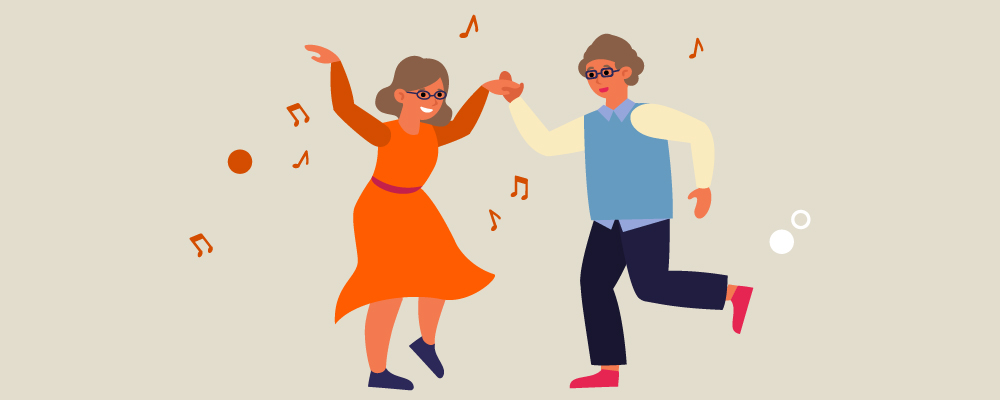
1. Stay Active
Staying active and keeping your body moving will help it stay strong. Strength doesn’t just mean moving furniture around. It also means climbing the stairs without losing your breath or picking up your bag without feeling back pain.
If you keep your body moving, these signs of an ageing body won’t creep up on you as quickly.
Ideally, people over the age of 50 should participate in moderately intense physical activity for 150 minutes every week and perform strength training exercises twice a week.
In this context, moderately intense physical activity is a workout that gets you moving quickly, sweating, and raising your heart rate. For some people, that means a brisk walk; to others, it means a game of tennis.
Strength training will help you build strength and control in your muscles, which means less muscle pain. You can do this by performing lunges and squats, lifting weights, or using resistance bands.
If you partake in regular physical activity, you will reduce your risk of heart disease, obesity, falling, mental impairments, weak muscles, and osteoporosis.
Depending on your current physical level, determine what makes you sweat and gets your heart racing. Build a workout plan based on that level of intensity, and as you get stronger, add more sessions or harder workouts to your experience.
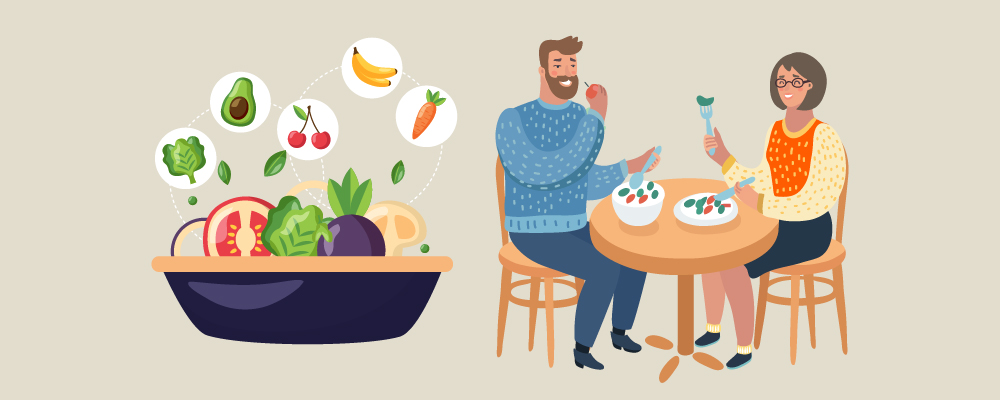
2. Watch What You Eat And Drink
A balanced diet will help you stay healthy. First, you should eat the right things. This means less processed foods such as microwave meals, bread, and sweets and more natural foods such as nuts, fruits, and meats.
You should also avoid unnatural drinks such as alcohol and soda; instead, stick to water. Soda and alcohol will dehydrate you, making you feel more tired and confused than necessary. Alcohol, in particular, contains toxic chemicals which will harm your body.
Ideally, you should be drinking 6 to 8 glasses of water every day, and you should be eating more fruits, vegetables, and proteins than potatoes and rice.
You should also eat only what you need. Don’t simply eat because it’s dinner time. Ask yourself if you’re really hungry and eat small portions when you are.
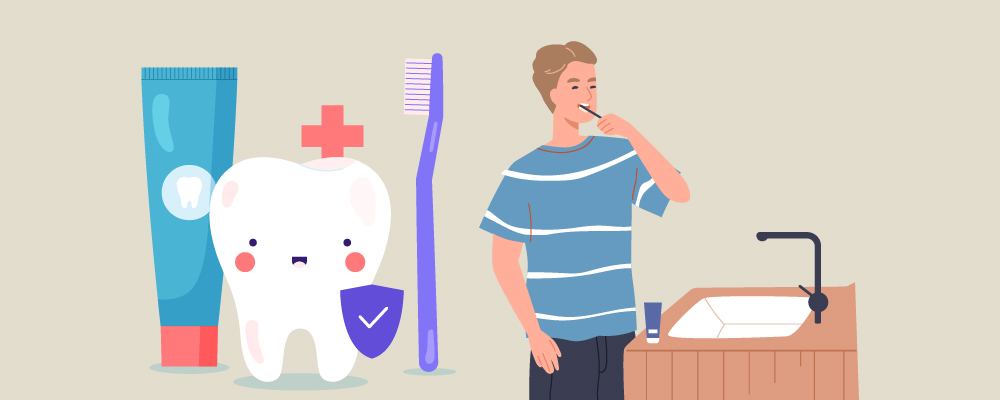
3. Look After Your Teeth
There are three reasons to look after your teeth. First, your oral health is directly linked to the rest of your body.
If there is an issue with your gums, this can be linked to issues with your heart. Here is a short list of how poor dental health can affect your body:
- Lead to pre-diabetes
- Lead to heart disease
- Lead to Alzheimer’s
Secondly, tooth pain is one of the worst pains to experience. If you look after your teeth, these pains will be less frequent and treated easily.
Thirdly, maintaining oral health can help you feel more positive about yourself. You never realise how important your smile is until it’s gone. Looking after your teeth and getting dentures when needed will help you avoid mental health lapses due to your appearance.
To maintain your teeth, brush them twice daily and floss at least once daily. Flossing is an integral part of oral care, as it removes food stuck in between your teeth and prevents gum disease.
4. Work On Your Flexibility
A decline in flexibility is normal as we age. This is because our muscles lose their elasticity and become shorter naturally.
You should practice stretching to prolong this process and prevent your muscles from developing pain. Stretching will keep your range of motion high and prevent tension in your muscles.
For older adults, we should focus on decreasing back pain, improving posture, and preventing or reducing arthritis.
Here are a few stretches to help you get started.
Standing Quadriceps Stretch
- Grab a chair and stand behind it.
- Hold the chair and lift one leg behind so it touches your bottom.
- Use one hand to help keep your leg in place and another to hold the chair, keeping your balance.
- Hold this position for 20 seconds, and then release.
- Now, do the other leg.
Seated Knee To Chest
- Sit on a dining chair.
- Hold on to one knee and slowly pull it to your chest.
- When you feel the stretch, hold that position for 20 seconds.
- Guide your leg to the floor again, and repeat with the other leg.
Soleus Stretch
- Stand and face a wall
- Place one foot in front of the other, and place both hands on the wall for support.
- When comfortable, bend your knees slowly until you feel a stretch in your lower leg.
- Hold this position for 20 seconds.
- Do the same thing with your other leg.
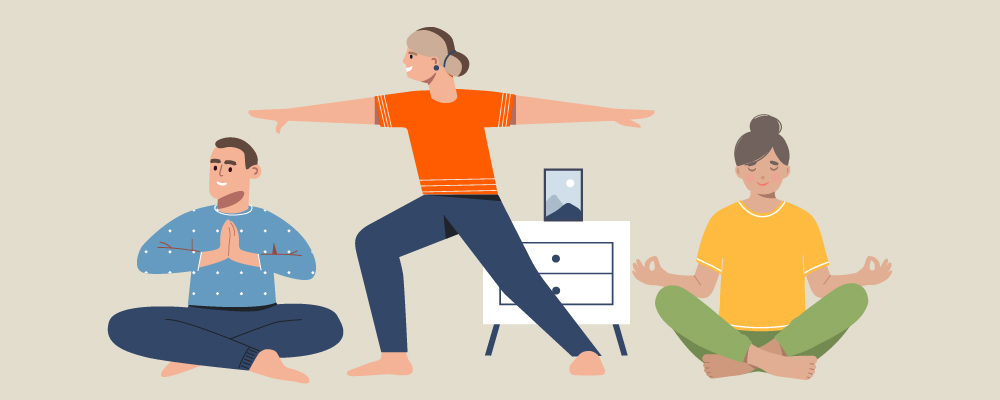
5. Manage Stress Levels
In the 2006 study Stress, Age and Immune Function: Toward A Lifespan Approach, scientists showed that psychological stress can exacerbate and mimic the effects of ageing.
For the elderly, stress can dramatically affect a person’s immune system at greater lengths than a younger adult.
To help release stress, here are some techniques you can follow:
Use Relaxation Techniques, Such As Meditation, Breathing Exercises, And Yoga
Breathing exercises and meditation force our bodies to slow down. When performed properly, they put our minds into a deep and tranquil state where we can release our emotions and become present.
There are multiple types of meditation.
Here are a few:
- Guided Meditation – you listen to someone who tells you to imagine things. This type of meditation is perfect for people who need something to focus on.
- Mantra Meditation – You repeat a calming word or sound to help clear your mind of thoughts.
- Mindfulness Meditation – involves allowing yourself to hear everything around you, feel your breath, observe thoughts that come to the surface, and then let them pass without judgment or analysis.
Get Adequate Sleep
Ensuring you have enough sleep can help you reduce stress from multiple angles.
First, being significantly rested will decrease your cortisol levels. Cortisol is a stress hormone that helps you respond to danger quickly, boosting your heart with adrenaline to give you the energy you need.
However, too much cortisol will lead to cardiovascular issues as your heart is constantly put under pressure. Sleeping between 7 and 9 hours a night can help you maintain healthy cortisol levels.
Secondly, a long sleeping period helps our body repair itself. When unwell, we need to sleep more to speed up our recovery.
The same can be said with stressful situations. “Sleeping on” a problem can help your mind find a relaxed and reasonable response to a problem in your life, thereby reducing stress. Sleep heals the body and the mind.
We will talk more about sleep later.
Talk To A Friend
Talking about your problems will make you feel better. Saying them aloud can help you understand why you are feeling stressed, and a second person’s insight can help you tackle problems you couldn’t get past before.
Psychologist James Pennebaker found that writing down our experiences and problems can have the same effect. The idea comes from secret keeping. Keeping secrets is a stressful endeavour that lasts for as long as the secret does.
Scientists Vago and Silbersweig found that verbalising our emotional pain can help us label them. Once labelled, our brain can better deal with the emotional damage it has caused.
Keeping anything “inside” will increase your stress levels, while talking about it or seeing it from a different perspective (such as a written form) can help you tackle the problem in a way you couldn’t perceive before.
Exercise
Exercise can reduce stress levels in the same way that sleep can. Instead of tackling the problem head-on (such as talking to a friend), you instead focus on the hormones in your body.
Exercise pumps endorphins around your body. Endorphins are happy hormones produced through heavy exercise, such as running, hiking, tennis, or anything else you may enjoy sportswise.
This natural high can help create a balance of positive emotions over negative ones.
Secondly, exercises can help release the fight-or-flight hormones we mentioned earlier. Cortisol and adrenaline are designed to help you fight or escape a problem, but these outcomes aren’t common practice in our modern world. Instead, you’re left with anxious energy and nowhere for it to go.
You could be intellectually over a problem but emotionally still caught up in the moment. To help you relieve this stress, going for a run can help burn away the survival-based hormones.
Exercise is an excellent option for people who find it hard to reduce the anxiety or emotional response they have built up.
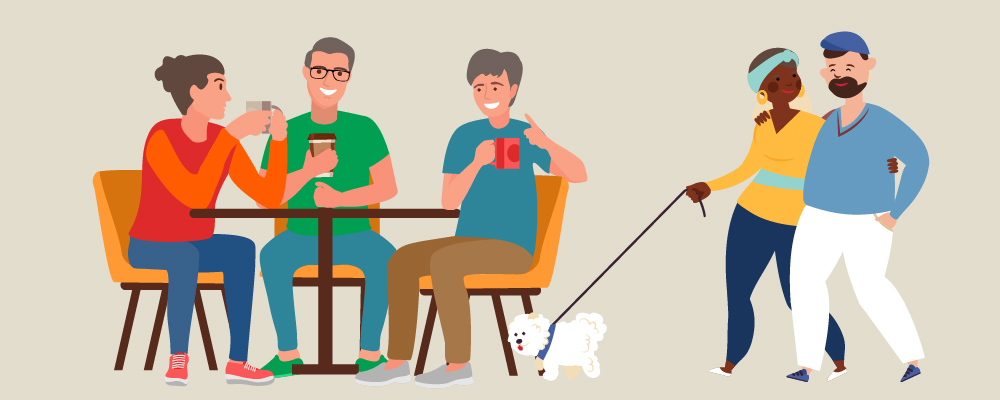
6. Stay Social
Socialising is an important part of staying healthy. We cannot forget our minds as we worry about our ageing bodies.
People who live alone or don’t enjoy the social engagement of close friends will lose their ability to think critically and eventually reach a slowed total cognitive ability.
This means that those who are unsocial are more likely to develop dementia.
So, how can you ensure your mind stays active?
Here are some ideas.
Connect Regularly With Friends And Family
Social engagements are more than a fun activity; they also help prevent loneliness and keep our minds active.
When we speak to our friends and learn about their activities, we gain insight into their lives. Simple tasks like this allow us to see new perspectives, explore concepts we haven’t considered before, and problem-solve.
All of these experiences help us keep our minds active and working. Social problems are still problems, and learning how to navigate them is a skill. Keeping this skill engaged will help your cognitive functions stay sharp as you age.
Make An Effort To Make New Friends
New friends don’t need to be lifelong partnerships. If you go to a coffee shop and are served by the same staff, you can develop friendships with them.
This will help you stay sharp in your social abilities, as it can be hard to gauge new people immediately.
Thinking about what they might find interesting and how their life might be can help you keep that problem-solving mind going.
Of course, you can always make strong friendships, too. You can do this by putting yourself out there and offering to meet people outside of your usual environment.
Making new friends can help you stretch that social skill and keep your mind alert to social interactions.
Many people think making new friends is hard; however, the hardest part is trying. If you head to a place of interest, you will find topics of conversation between you and the people around you.
For example, you can find social groups on local walking paths if you enjoy walking. You will all have at least one topic in common already. From there, you need to start talking.
Volunteering
Making friends was easy when we were in school. We were forced to hang out with the same people every day, so a friendship was bound to happen.
The same thing would occur during our working life. We were forced to spend time with the same people, so we quickly learned who you got on with and didn’t.
If you don’t have a clear hobby or find it hard to make friends quickly, try replicating your school and working environments. Start volunteering.
To help you on this journey, you should first look at locations you enjoy. A national park, a theatre, helping those in need, whatever you find the most interesting and enjoyable.
Picking this quality first will ensure you’re having a good time, regardless of the friends you make.
From there, you can enjoy the structure of a routine and meet other people with your interests.
Make sure you don’t overwork yourself. When you’re volunteering, you help someone out. This means you shouldn’t work more than you want to or become pressured into continuing work when you need a rest.
Find Support Groups In Times Of Change
So far, we have discussed finding people with the same interests as you. If you have gone through a tough change in your life, you should be looking for people who have gone through something similar.
Losing a loved one, developing an illness, moving locations, or struggling with a new life stage are common issues to deal with.
Finding a support group for these changes can help you discover people who understand your problems and can offer you insights and advice you hadn’t considered before.
You can find support groups by heading to community areas or searching online for the support you need.
For example, MeetUp.com has online support groups for a wide range of people. You can search for local and topic-specific groups to find people in the same situation as you.
Remember, being with people who have been through the same situation as you can help you find clarity and peace of mind in an otherwise difficult time.
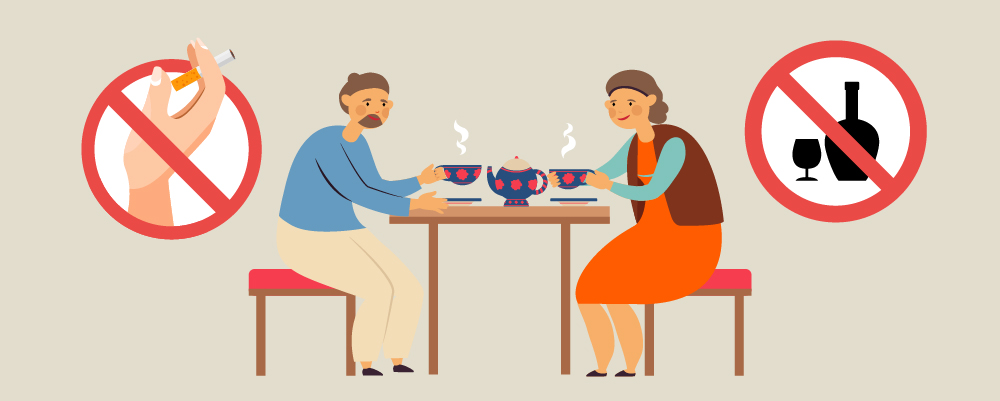
7. Quit Smoking And Decrease Alcohol Consumption
Both smoking and alcohol have strong links to premature ageing. They do this by increasing the production of a specific enzyme. This enzyme breaks down the collagen needed to keep our skin’s elasticity.
This means smoking and alcohol rapidly increase sagging and wrinkled skin.
Of course, this only touches on the outside signs of ageing. Smoking and drinking put toxins into our bodies, causing our organs to work harder than necessary to keep us functioning correctly.
Our lungs and liver are heavily attacked, putting pressure on our hearts.
If you are struggling to quit smoking or drinking, consider talking to a health professional and an addiction counsellor.
They can tell you how to reduce your intake without causing massive withdrawals. This method can help you quit for longer periods and help your body recover effectively.
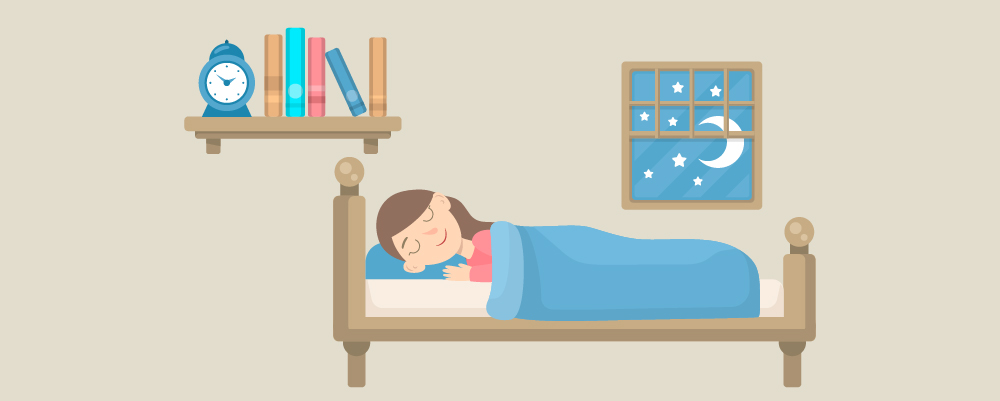
8. Get Enough Sleep
We have already discussed sleep and mental health, but we want to touch on sleep for physical health.
As we said before, sleeping helps your body recover and repair from the day’s events.
From a physical health point of view, this means your heart rate lowers, putting less stress on your organs; your breathing and blood pressure fall, again putting less pressure on your body; and your repairing hormones are released.
Your body doesn’t have this reset without a substantial amount of sleep. Your heart and blood pressure don’t have a relaxed state, which means heart attacks and high blood pressure are more likely.
Allowing the repairing stage to go through a complete cycle will help your muscles gain strength after the exercises we have suggested before.
This means your body will get stronger and healthier as your muscles grow and your body heals from the initial exercise.
Ideally, you should be sleeping for 7 to 9 hours a day. This should also be in one long segment, but if you need to break up your sleeping schedule, that’s fine as long as you get the overall rest you need.
9. Drink Plenty Of Water
We have already discussed why you should drink plenty of water, but that advice did not discuss why it’s important for everyone.
The elderly need more water and constant drinking than any other age group. Your body loses water when breathing, sweating, digesting, and repairing tissues.
An older person’s body will repair its tissues more often than most. This is because your organs will try harder than most to keep you healthy.
Failing to stay hydrated can have dire consequences for the elderly and those with dementia. This is because we are more susceptible to Urinary Tract Infections, changes in mood, dizziness, and falls.
Dehydration can cause these issues, as the water isn’t flooding out our toxins like it should. This, in turn, leaves us with excess hormones, which add to the confusion.
If you’re unsure how much water you have drunk in a day, you can buy a bottle with lines along the side that tell you how much you have left to drink, or you could make sure there is always a glass of water by your side.
You cannot drink too much water, so drinking more is better than drinking less.
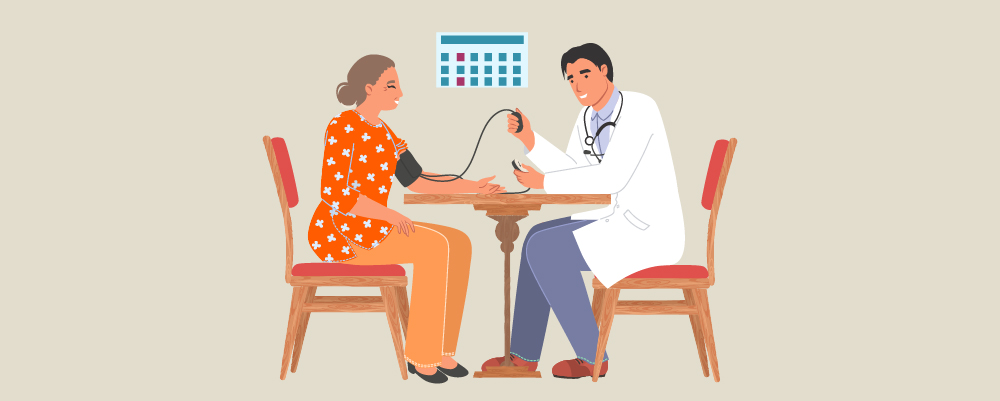
10. Go To The Doctor Regularly
A young adult should see their doctor every three years if they are already in good health and have no obvious problems. When you hit 50, that schedule should turn into once a year.
This is because your health is likely to decline, regardless of how healthy your lifestyle is.
Spotting issues fast gives you and your doctors time to find a solution and slow down any issues. This can help you live a pain-free life for as long as possible.
However, you shouldn’t delay a doctor’s visit because of this schedule. If you notice something wrong, no matter how small, it’s better to create a new appointment and get it seen to as soon as possible. This will help you catch problems before they turn into something serious.
If you haven’t already, schedule a recurring program with your doctor to get this regular check-up process in motion.
11. Take Care Of Your Mental Health
Mental health doesn’t just mean stress. It means anything that can affect your overall happiness.
Most people are unaware of their negative mental health because it isn’t a constant pressure in their lives. However, when they dig deeper, they realise something is missing.
The most common form of low mental health comes from these issues:
- Staying Indoors
- Not Experiencing New Things
- Lack of Exercise
- Low Volumes Of Socialising
- Not Challenging Themselves
We have talked about exercising and socialising already, so let’s turn to the problems of indoor life and not experiencing new things.
When we are outdoors, we instantly start a type of meditation of the mind. Being around nature and hearing the sounds of nature can help us find calm and tranquillity.
We don’t have to actively think about meditation, as our bodies naturally enter this thought zone.
This is why many people love walking. It makes them feel calm while still moving and talking with people.
Ideally, you should spend as much time outdoors as you can.
This leads us to experience new things. If you don’t spend much time outdoors, trying a new walking trail, park, or garden can be your first step.
When you enter a new space, your brain instantly digests all of this information, picks it apart, and stores it.
Without trying, you learn new things, which exercises your mind. Your brain feels endorphins like your arms would after a workout. This is an instant way to produce happiness hormones without too much effort.
Doing new things can initially feel scary, but to help you get started, ask friends or family to join in. You should also pick something you are interested in.
For example, attend a gardening show or a gardening club if you love gardening. If you love crafting, pick up a new crafting type and start learning.
Begin with things you already enjoy and look for something similar. As you keep doing this, more activities will come to mind.
12. Keep Your Mind Sharp
Keeping your mind active comes in many forms, including trying new things, socialising, and getting involved in problem-solving games.
You can play games online, on your phone or tablet, or even board games. It doesn’t matter how you keep your brain active, as long as you put yourself into unusual situations and have to think your way out of them. Then, you will be keeping your mind sharp and healthy.
13. Get A Vitamin Boost
No matter how old you are, you may have a vitamin D deficiency. This is because we spend most of our time indoors. As you get older, this deficiency becomes more problematic.
If you are deficient in vitamin D, you may experience bone pain, fatigue, muscle weakness, and cramps.
Going outside is an easy way to get vitamin D back into your body. Spending at least 15 to 20 minutes outside daily will allow your body to absorb vitamins from the sun.
If you are especially low in vitamin D, you can consume vitamin-boosting supplements or eat vitamin-rich foods such as oily fish.
14. Take Care Of Your Feet
Like your teeth, your feet can show signs of other ailments you are unaware of. If you lean to one side, you may be experiencing pain or tension along your back.
If the balls of your feet are worn, you may have posture problems.
You could also experience corns, ingrown toenails, bunions, and calluses. Although these issues might seem minor, they can easily lead to an unsteady balance and increase your risk of falling.
Ideally, you should care for your feet just as you would your hands. This means cleaning them often (especially between your toes), checking for cuts, swelling, or soreness, and applying moisturiser if your skin becomes dry.
If your skin is hard, consider using a file to remove dry skin and moisturiser to restore it to good health.
Ideally, you should care for your feet for 10 minutes weekly. File your nails, check for any abnormalities, and keep them moisturised.
Lastly, you should also be wearing the correct shoe types. Look for roomy box shoes with good cushioning and grip. Pick the right size for your feet, and avoid heels.
15. Protect Your Joints
Protecting your joints will help them keep their strength for longer and prevent falls, which result in broken bones.
Low-intensity exercise, such as walking, is an easy way to protect your joints. It helps keep your joints moving without putting much pressure on your muscles.
Swimming is also a great example, as it allows you to move all your limbs without pressure due to your body’s buoyancy.
You should also consume proteins and joint supplements to help keep your bones strong. Fish, dairy, and nuts are great protein choices, as are beans and legumes.
Ensuring your joints stay strong will allow you to stay mobile and maintain your strength for longer.
Eating well and staying active are key to healthy joints and overall life. These tips will help you age gracefully and stay in control of your autonomy for longer.
Ageing gracefully is akin to making the best lemonade from life’s lemons, focusing on the sweet rewards of maintaining a healthy, optimistic outlook on life.
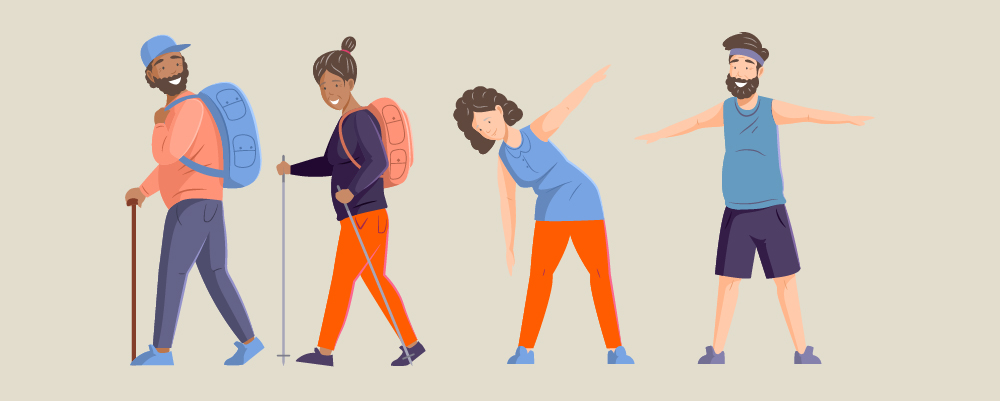
Summary
To stay healthy over the age of 50, you need to start thinking about how active you are, what you’re eating and drinking, and how you are managing your stress.
Once you create a routine that balances these elements of your life, you will be on your way to a healthier lifestyle.
Make sure you walk outside in nature, see your doctors regularly, eat purposefully rather than because you must, and keep your mind active.
Keep this page bookmarked so you have something to refer to when you feel lost and unsure of what to do next.
Research Sources:
- https://ageing-better.org.uk/sites/default/files/2018-11/ELSA-analysis.pdf
- https://www.ons.gov.uk/peoplepopulationandcommunity/birthsdeathsandmarriages/ageing
- https://ageing-better.org.uk/state-of-ageing
- https://assets.publishing.service.gov.uk/government/uploads/system/uploads/attachment_data/file/816458/future-of-an-ageing-population.pdf
Steve Case is a seasoned professional in the UK financial services and insurance industry, with over twenty years of experience. At Insurance Hero, Steve is known for his ability to simplify complex insurance topics, making them accessible to a broad audience. His focus on clear, practical advice and customer service excellence has established him as a respected leader in the field.


